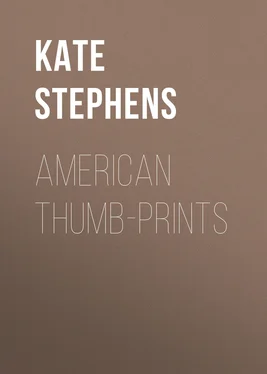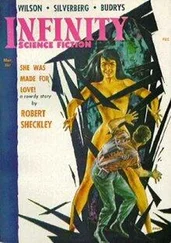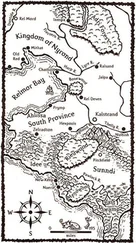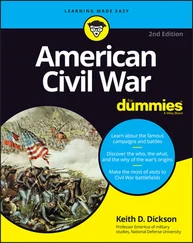Kate Stephens - American Thumb-prints
Здесь есть возможность читать онлайн «Kate Stephens - American Thumb-prints» — ознакомительный отрывок электронной книги совершенно бесплатно, а после прочтения отрывка купить полную версию. В некоторых случаях можно слушать аудио, скачать через торрент в формате fb2 и присутствует краткое содержание. Жанр: foreign_prose, foreign_antique, на английском языке. Описание произведения, (предисловие) а так же отзывы посетителей доступны на портале библиотеки ЛибКат.
- Название:American Thumb-prints
- Автор:
- Жанр:
- Год:неизвестен
- ISBN:нет данных
- Рейтинг книги:3 / 5. Голосов: 1
-
Избранное:Добавить в избранное
- Отзывы:
-
Ваша оценка:
- 60
- 1
- 2
- 3
- 4
- 5
American Thumb-prints: краткое содержание, описание и аннотация
Предлагаем к чтению аннотацию, описание, краткое содержание или предисловие (зависит от того, что написал сам автор книги «American Thumb-prints»). Если вы не нашли необходимую информацию о книге — напишите в комментариях, мы постараемся отыскать её.
American Thumb-prints — читать онлайн ознакомительный отрывок
Ниже представлен текст книги, разбитый по страницам. Система сохранения места последней прочитанной страницы, позволяет с удобством читать онлайн бесплатно книгу «American Thumb-prints», без необходимости каждый раз заново искать на чём Вы остановились. Поставьте закладку, и сможете в любой момент перейти на страницу, на которой закончили чтение.
Интервал:
Закладка:
With clear, far-seeing eyes—for plenty of oxygen has saved them from near-sightedness—a Hesperus boy will distinguish the species of hawk flying yonder in the sky, forming his judgment by the length of wing and color-bars across the tail. I have heard him comment on the tarsi of falcons which whirled over the roadway as he was driving, and from their appearance determine genus and species. He knows the note and flight of every bird. He will tell you what months the scarlet tanager whistles in the woods, why leaves curl into cups during droughts, and a thousand delicate facts which one who has never had the liberty of the bird and squirrel in nowise dreams of.
And why should he not? All beasts of the prairie and insects of the air are known to him as intimately as were the rising and setting stars to the old seafaring, star-led Greeks. During his summer the whip-poor-will has whistled in the shadow of the distant timber, and the hoot-owl has ghosted his sleep. He has wakened to the carol of the brown thrush and the yearning call of the mourning dove, as the dawn reached rosy fingers up the eastern sky.
He has risen to look upon endless rows of corn earing its milky kernels, and upon fields golden with nodding wheat-heads. And from the impenetrable centre of the tillage, when the brown stubble has stood like needles to his bare feet, he has heard the whiz of the cicada quivering in the heated air. The steam-thresher has then come panting and rumbling over the highway, and in the affairs of men the boy has made his first essay. He cuts the wires that bind the sheaves, or feeds the hopper, or catches the wheat, or forks away the yellow straw, or ties the golden kernels in sacks, or brings water to the choked and dusty men. He runs here and there for all industries.
Perhaps it is because of his association with such fundamentals of life that this boy has great grasp upon the physical world. In his very appearance one sees a life untaught in the schools of men. In looking at him there is nothing of which you are so often reminded as of a young cottonwood-tree. The tree and the boy somehow seem to have a kinship in structure, and to have been built by the same feeling upward of matter. And this perhaps he is—a broad-limbed, white-skinned, animalized, great-souled poplar, which in ages long past dreamed of red blood and a beating heart and power of moving over that fair earth—after the way that Heine’s fir-tree dreamed of the palm—and finally through this yearning became the honest boysoul and body which leaps from pure luxuriance of vigor, and runs and rides and breathes the vital air of Hesperus to-day.
But even with the strong-limbed physique which open-air life upbuilds, the Hesperus students have their full quota of nervousness. Elements in their lives induce it. First there is the almost infinite possibility of accomplishment for the ambitious and energetic—so little is done, so much needs to be. Again, temperature changes of their climate are most sudden and extreme. A third incentive to nervous excitation is the stimulant of their wonderful atmosphere, which is so exhilarating that dwellers upon the Hesperus plateau suffer somnolence under the air-pressure and equilibrium of the seaboard.
Unfortunately the students have until lately had nothing that could be called a gymnasium, in which they might counterpoise nerve-work with muscular action. At one time they endeavored to equip a modest building. In the Legislature, however, the average representative, the man who voted supplies, looked back upon his own boyhood, and, recalling that he never suffered indigestion while following the plough down the brown furrow, set his head against granting one dollar of the State’s supplies for the deed fool athletics; in fact, he lapsed for the moment into the mental condition of, say, a Tory of Tom Jones’s time or a hater of the oppressed races of to-day.
This one instance will possibly give a shadow of impression of the power base politics—reversions to conditions our race is evolving from—have had in Hesperus University life. The power was obtained in the beginning chiefly because of the University’s sources of financial support—appropriations by biennial Legislatures in which every item, the salary of each individual professor, was scanned, and talked over, and cut down to the lowest bread-and-water figure, first by the committee in charge of the budget and afterwards by the Legislature in full session. One instance alone illustrates. In the early spring of 1897, when the University estimate was before the Legislature for discussion and the dominating Populists were endeavoring to reduce its figure, a legislator sturdily insisted: “They’re too stingy down there at the University. They’re getting good salaries, and could spare a sum to some one who would undertake to put the appropriations through.” One thousand dollars was said to be “about the size of the job.” A cut of twenty per cent., generally speaking, upon already meagre salaries resulted to a faculty too blear-eyed politically and unbusiness-like to see its financial advantage. After two or three years the stipends were restored to their former humility, the Legislature possibly having become ashamed.
And in the make-up of the senatus academicus, or board of regents, thereby hangs, or there used to hang, much of doubt and many a political trick and quibble. It was a variation of the dream of the Texas delegate to the nominating convention—“The offices! That’s what we’re here for.” For if a Democratic governor were elected, he appointed from his party men to whom he was beholden in small favors. The members of the board were Democrats, that is, and were expected to guard the interests of their party. Or if the voters of Hesperus chose a Republican executive, he in turn had his abettors whom he wanted to dignify with an academic course for which there were no entrance examinations beyond faithfulness to party lines and party whips. It thus happened that the fitness of the man has not always been a prime consideration in his appointment. More often because he was somebody’s henchman, or somebody’s friend, the executive delighted to honor him.
These political features in the board of regents materially affected the faculty. For instance, if there were among the professors one who illustrated his lectures or class-room work by examples of the justice and reasonableness of free trade, he acted advisedly for his tenure if he lapsed into silence when the Republicans were in power. But if, on the other hand, he advocated protection instead of free trade, while the Democrats held State offices—which happened only by unusual fate—it was prudent for the professor to hold his tongue.
Upon every question of the day, and even in presenting conditions of life in ancient days, as, for instance, in Greece, the faculty were restrained, or at least threats were rendered. The petty politics of an agricultural democracy acted upon academic life in precisely the same way that autocracy and clericalism in Germany have affected its university faculties. In Hesperus professors have been dismissed without any excuse, apparent reason, or apology, because of a change of administration at the State capital and a hungry party’s coming into power. In various callings, or lines of life, the individual may be, nay, often is, wantonly sacrificed, but surely one of the saddest results of political shystering is the cheapening of the professor’s chair, and rendering that insecure for the permanence of which active life and its plums have been yielded.
Hinging immediately upon the political machine are the rights of and recognition of women in university government and pedagogic work. The fact that two or three women were the strenuous initiators of the institution has been forgotten, and no longer is there faith that
Читать дальшеИнтервал:
Закладка:
Похожие книги на «American Thumb-prints»
Представляем Вашему вниманию похожие книги на «American Thumb-prints» списком для выбора. Мы отобрали схожую по названию и смыслу литературу в надежде предоставить читателям больше вариантов отыскать новые, интересные, ещё непрочитанные произведения.
Обсуждение, отзывы о книге «American Thumb-prints» и просто собственные мнения читателей. Оставьте ваши комментарии, напишите, что Вы думаете о произведении, его смысле или главных героях. Укажите что конкретно понравилось, а что нет, и почему Вы так считаете.












